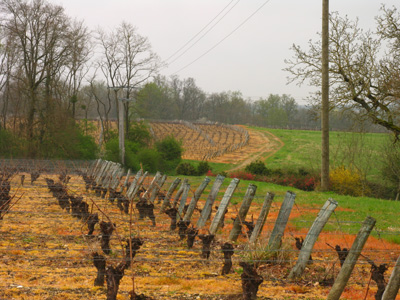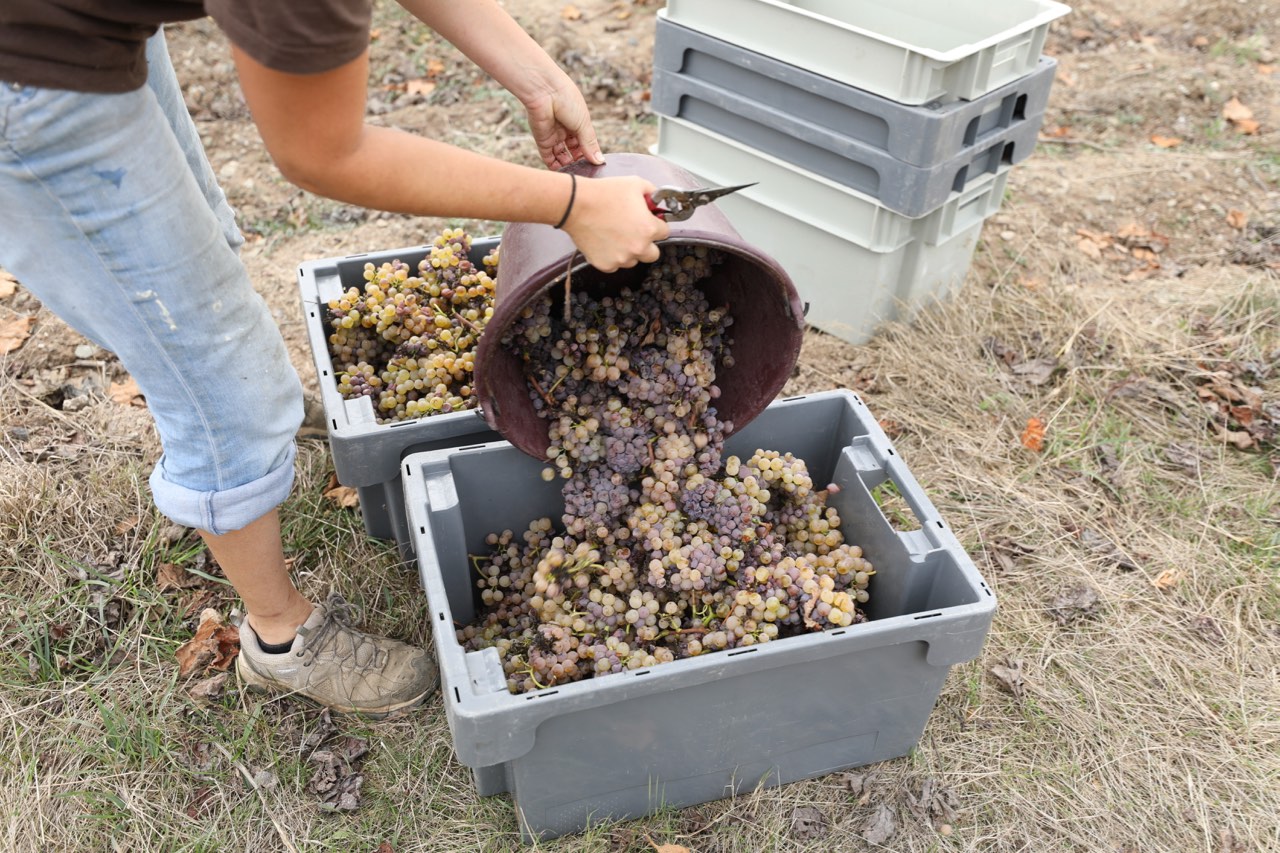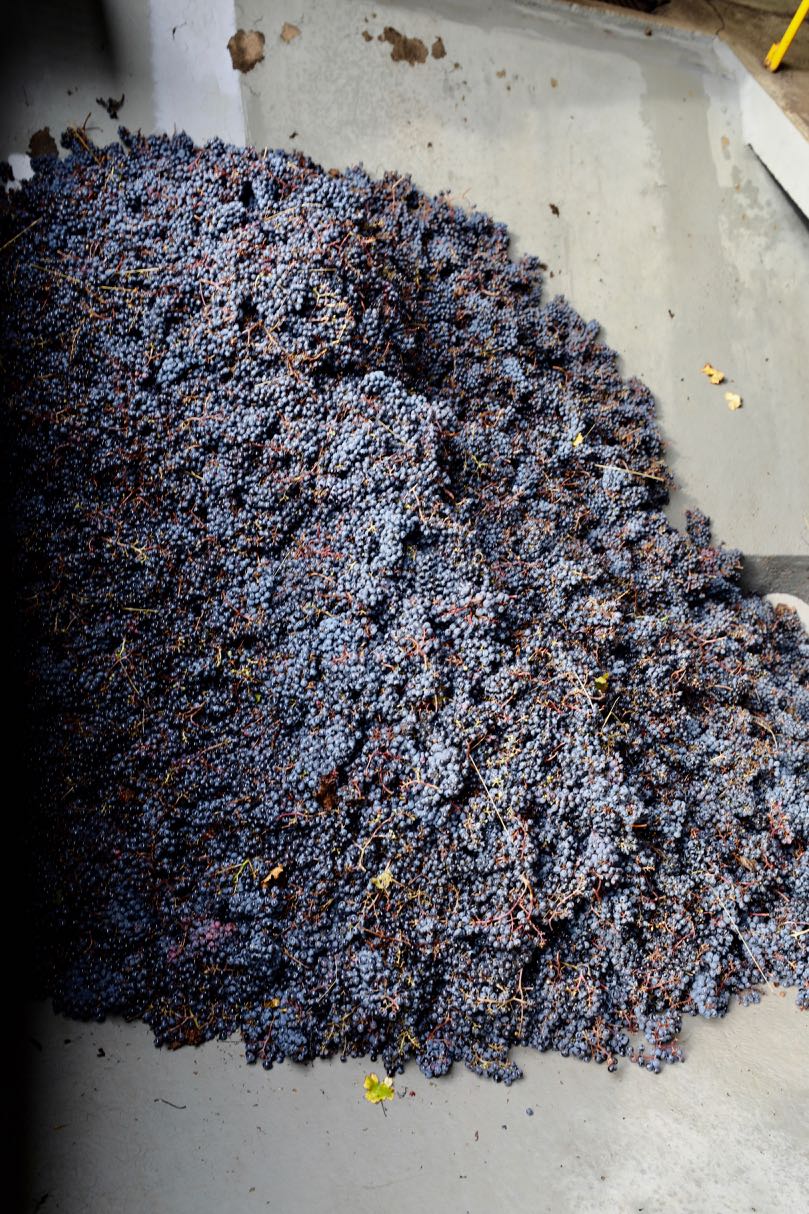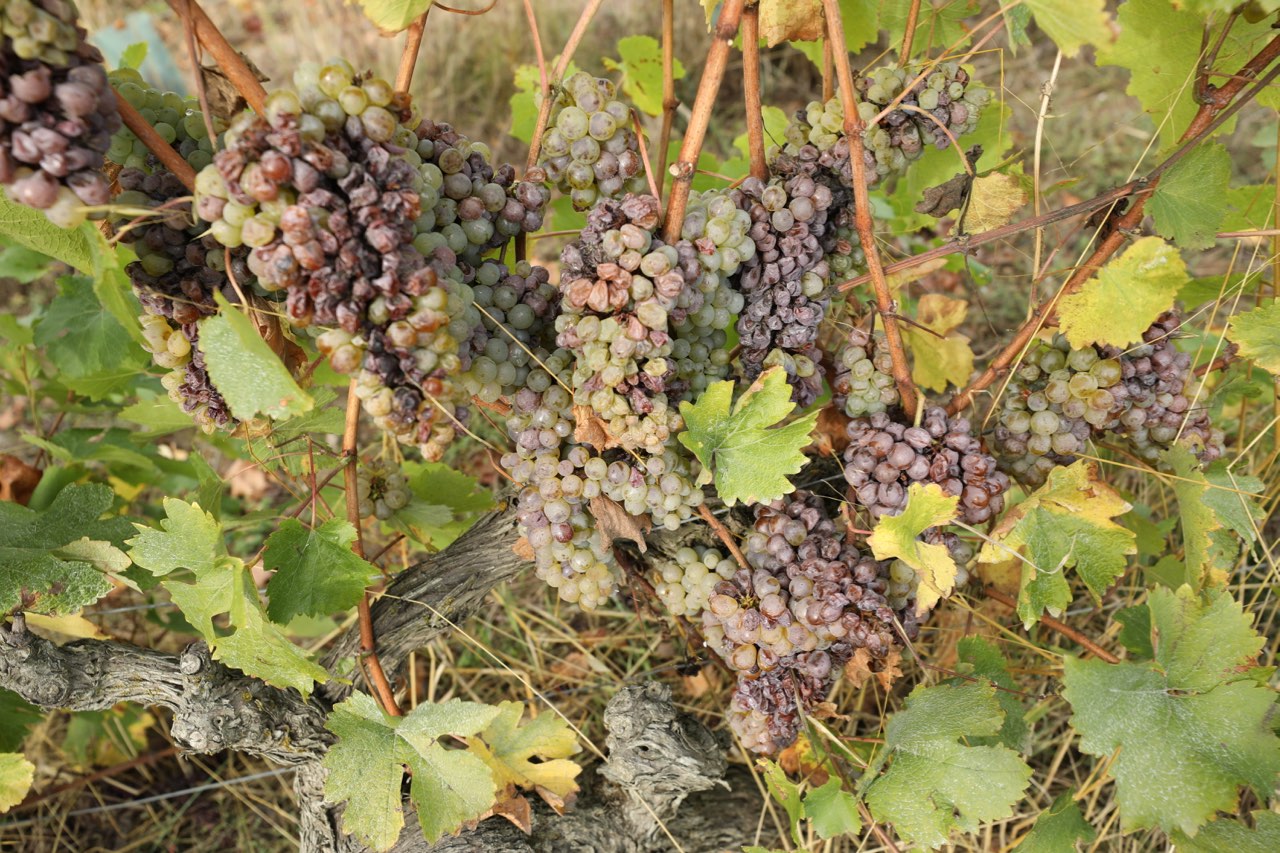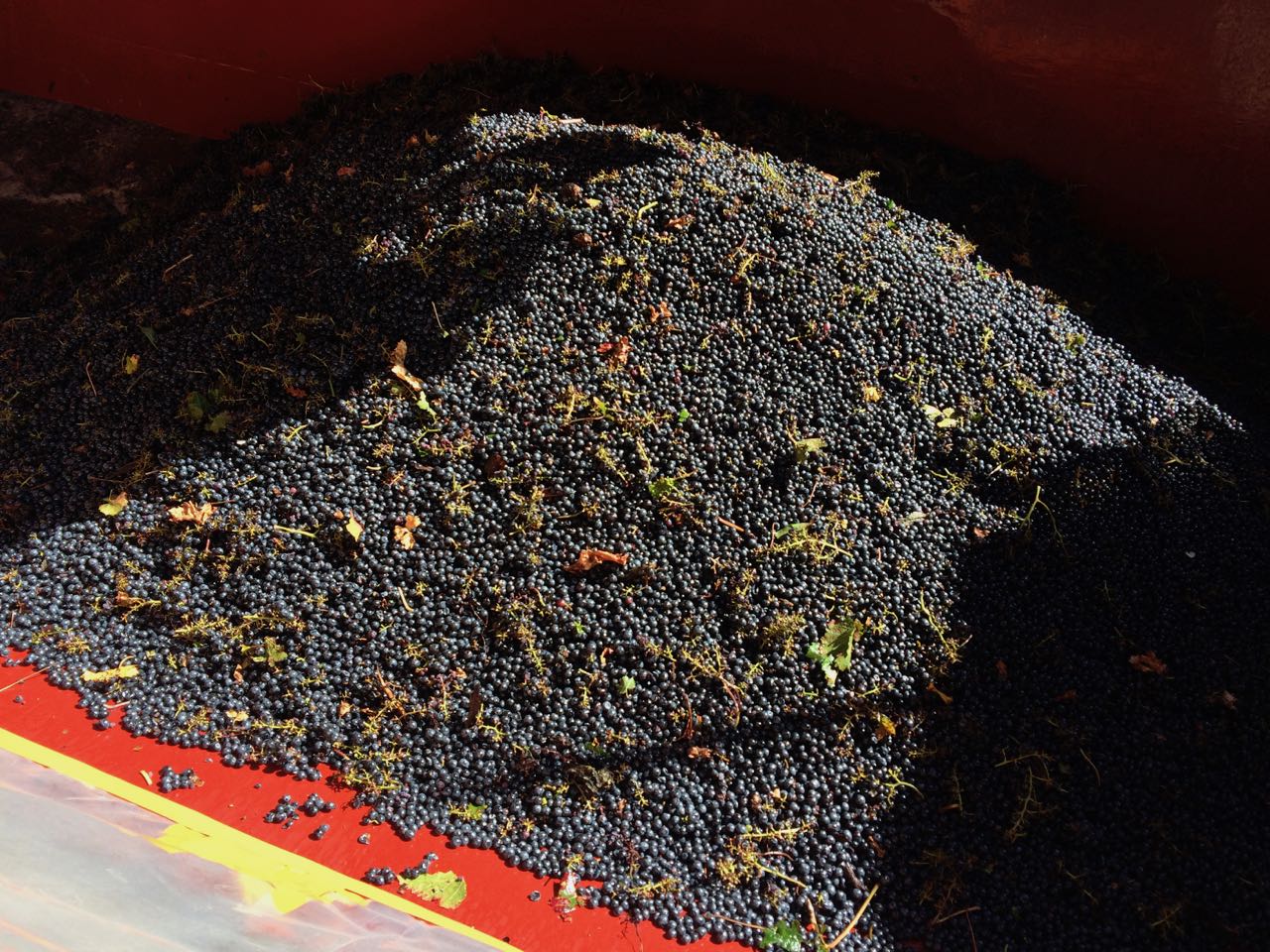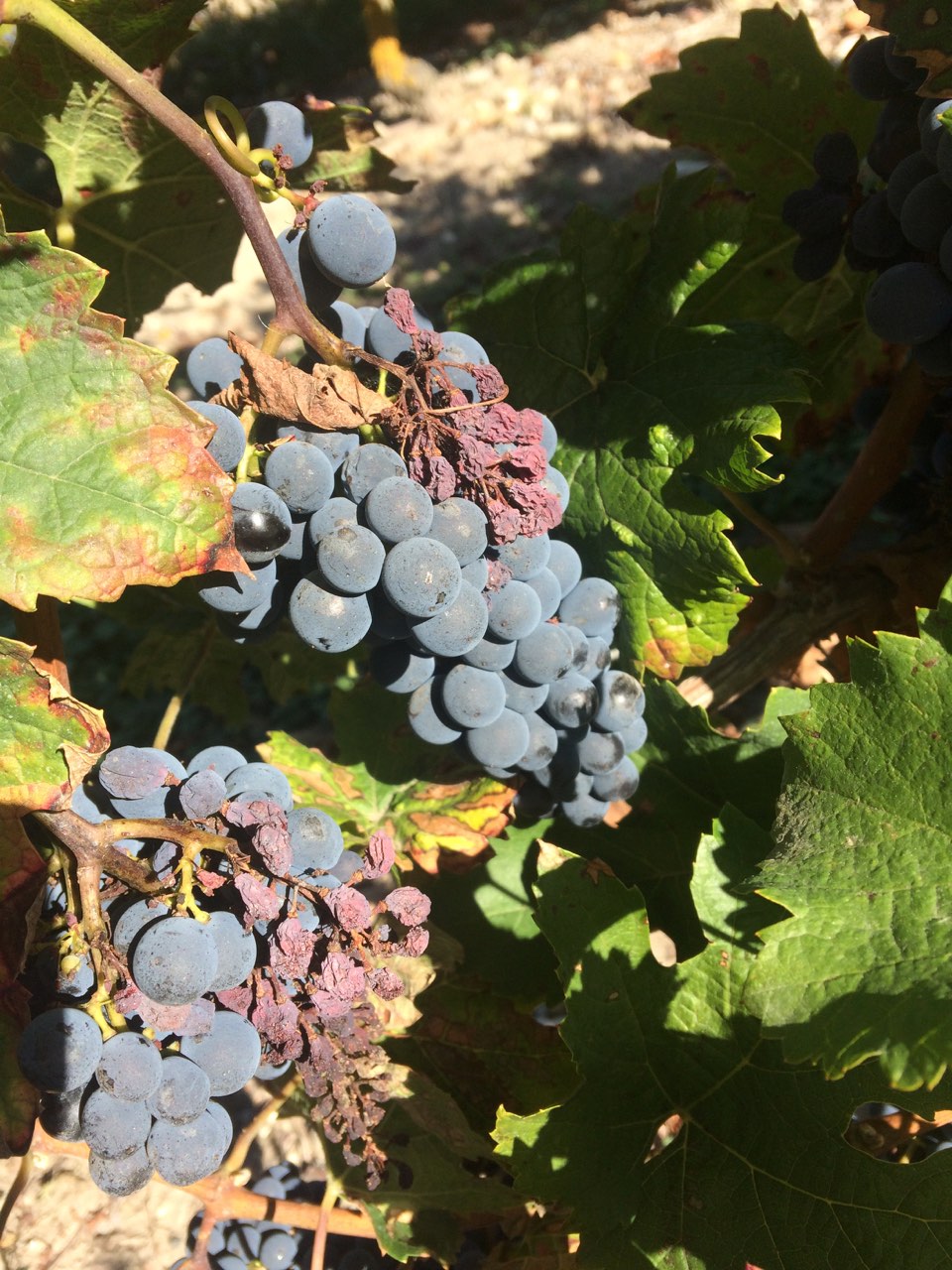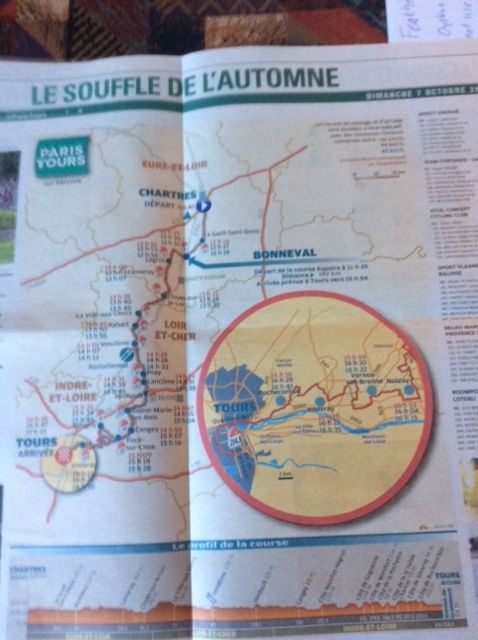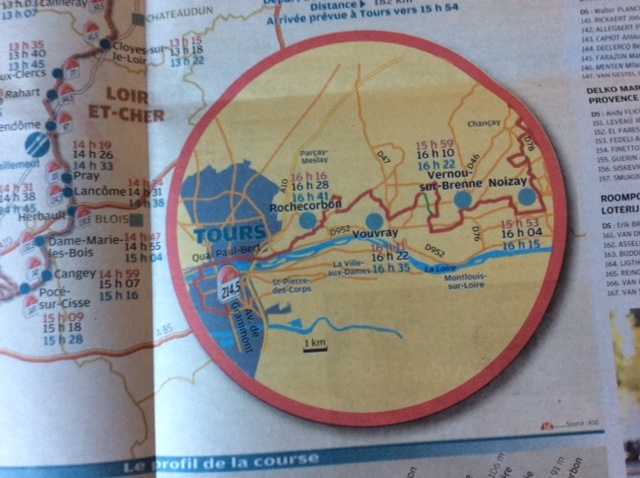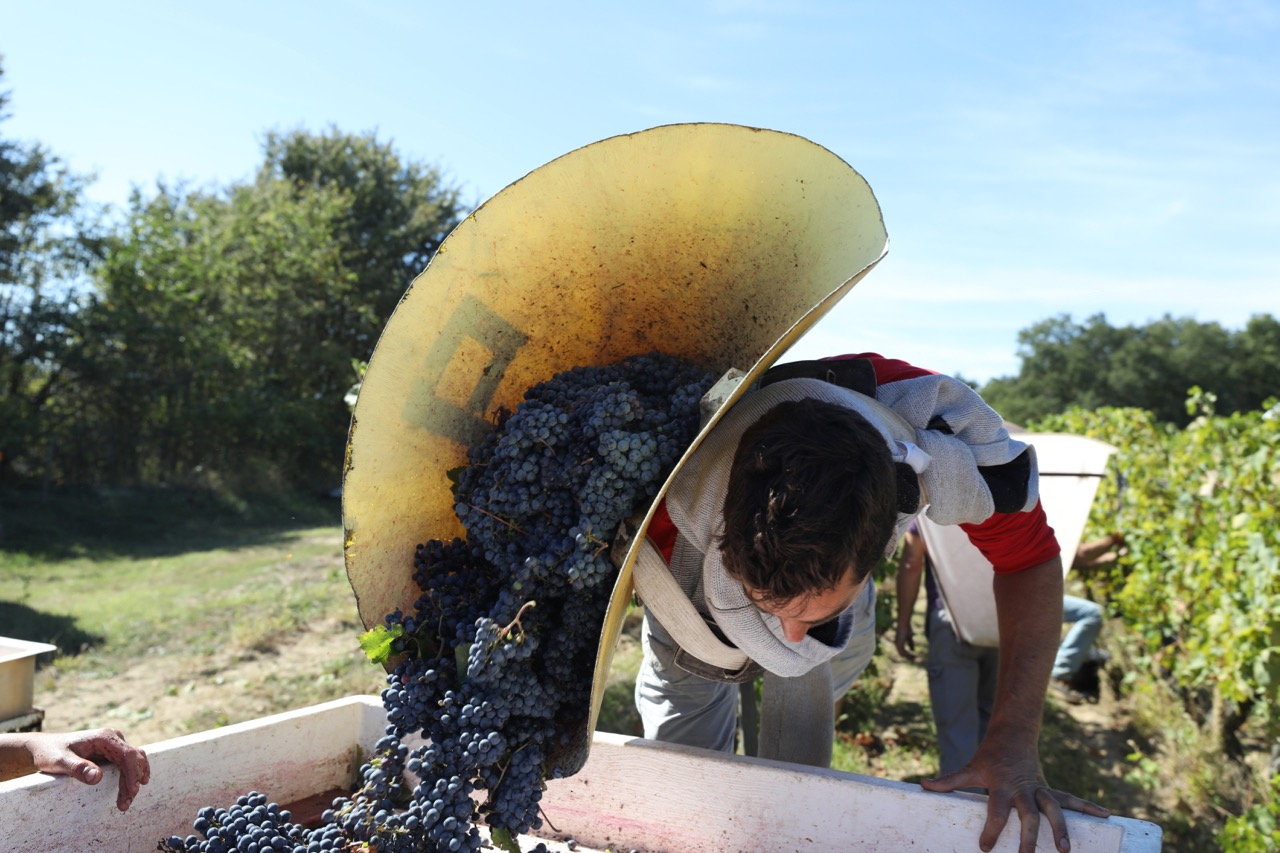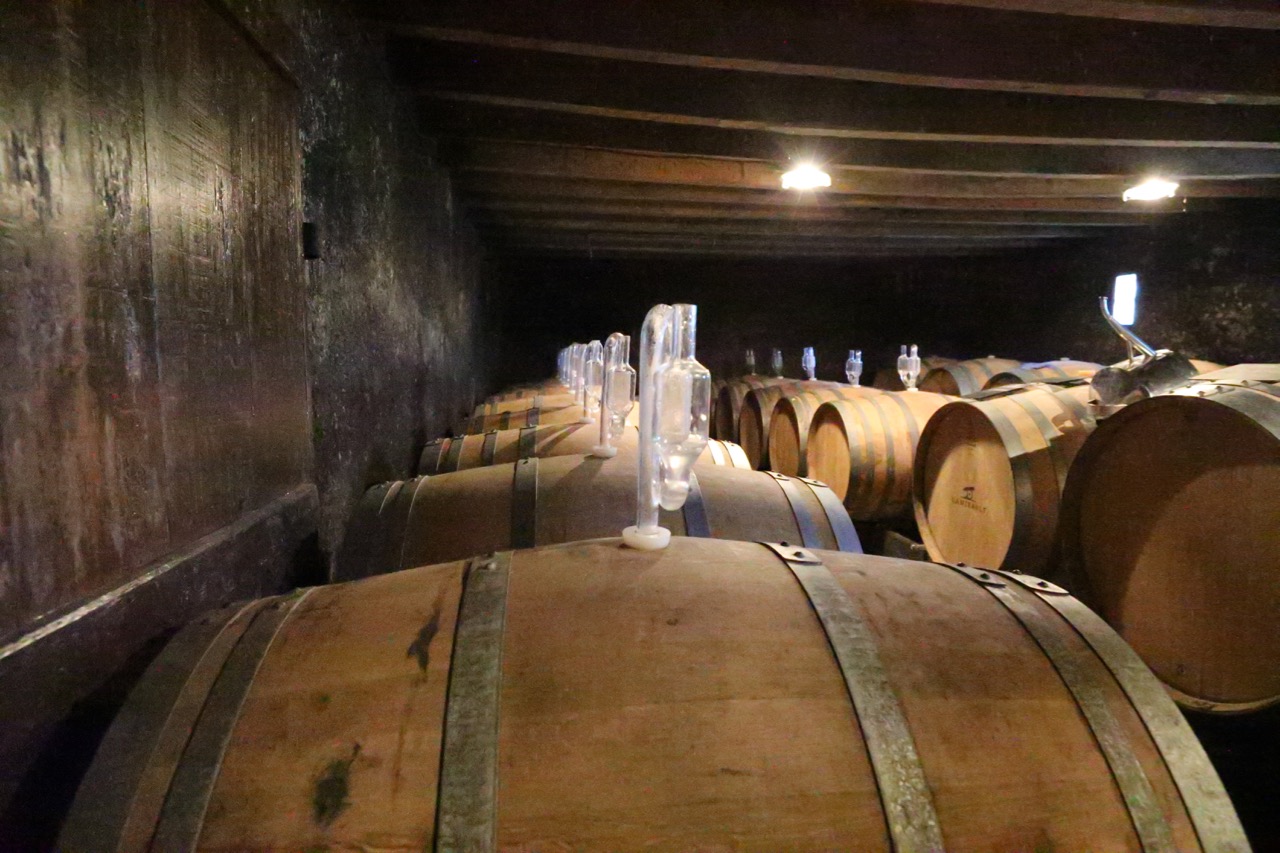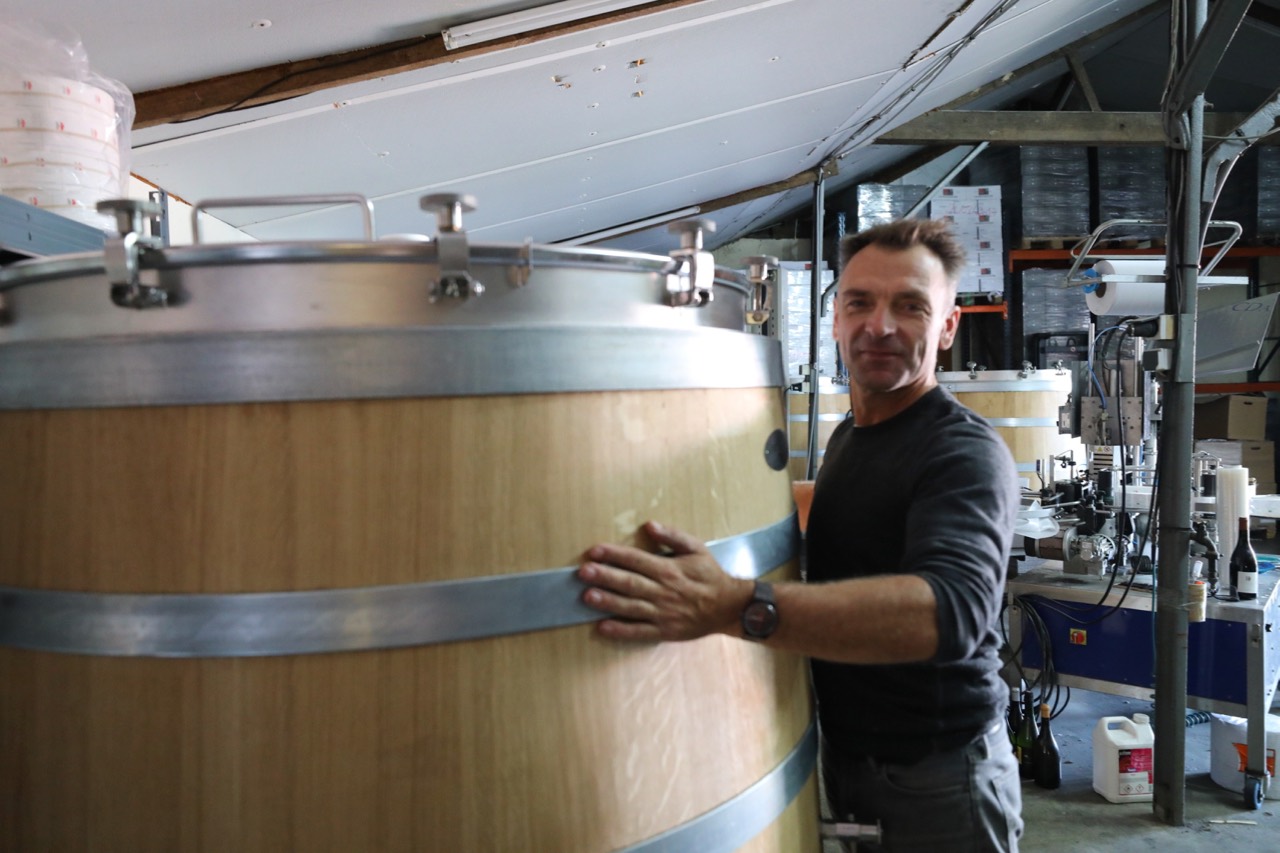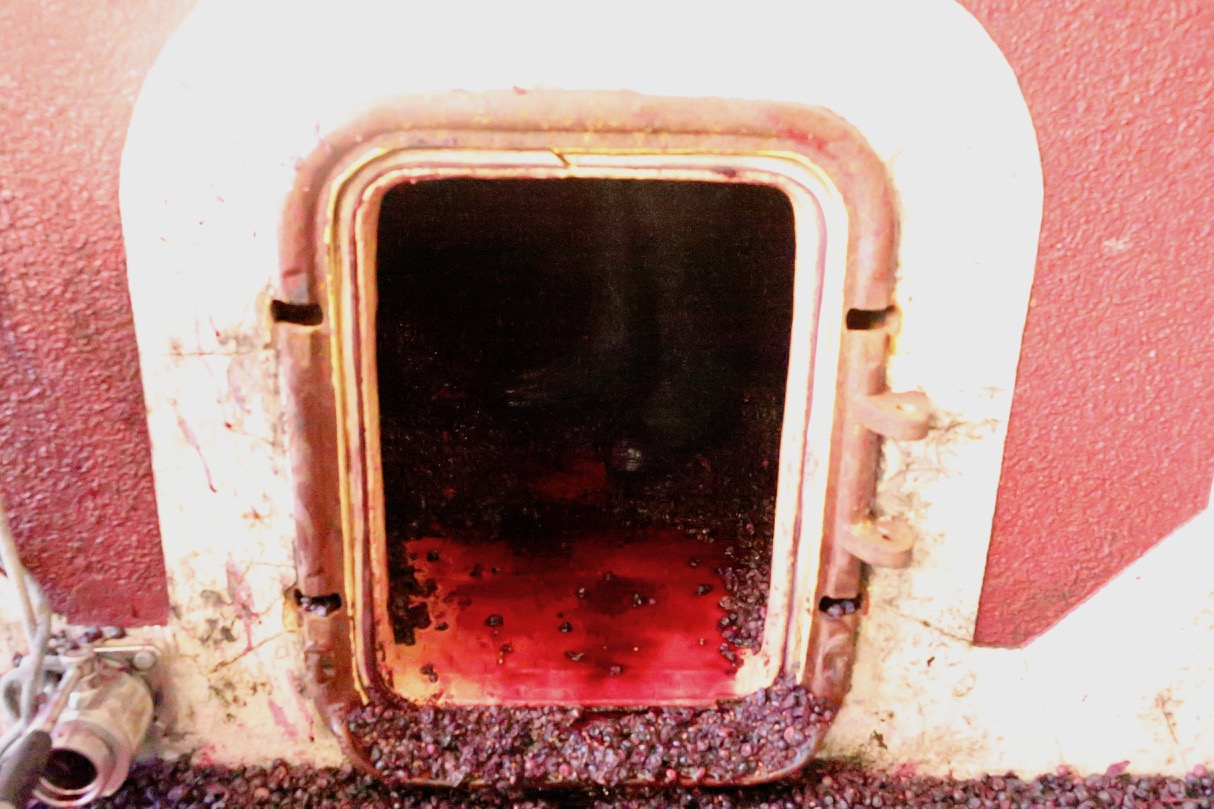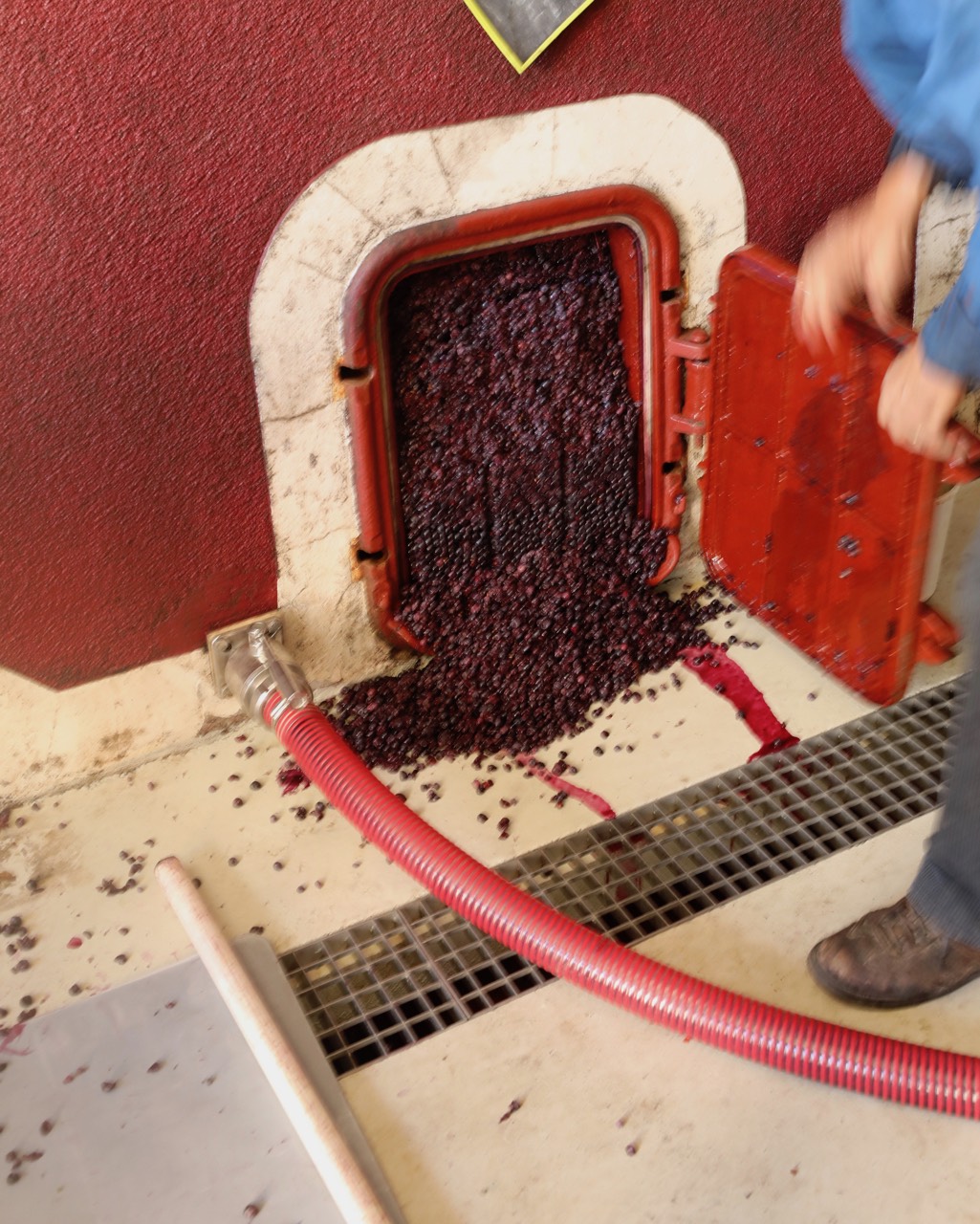Chenin Blanc destined for a single cuvée of moelleux
at Domaine de Juchepie
Picker's hat held in place by a local stone
We spent last Wednesday and Thursday in Anjou on a quick visit to see how the harvest has been going here. Overall the message is much the same as in other parts of the Loire. Several producers commented that they had never seen grapes like these before – giving both quality and quantity.
Of the producers we saw many started in early September – Damien Laureau (4th September and finishing by 10th September), sisters Anne and Marie Guégniard, Domaine de la Bergerie (6th September) and Vincent, Catherine and Emmanuel Ogereau also on 6th.
I tasted juice/fermenting wine at all three domaines and I found them all clean and precise often with potential complexity depending on the particular parcel and age of vine.
Visiting Claude and Réné Papin at late Wednesday afternoon, Claude was critical of producers who he thought had picked to early and suggested that many 2018 wines would be simple, fruit driven without complexity because the grapes had been picked before they were physiologically ripe. The counter argument to this is that picking started in early September to avoid alcohol degrees shooting up to ridiculous heights due to the very warm conditions. Some of Damien Laureau's cuvées are at 14.5% despite starting and finishing early.
It will be exciting to taste these wines when they are finished. Perhaps we will be able to see who got it right....... may be!
Once again the one sour note in 2018 is mildew with some very badly affected. We dropped in to see Eddy et Mylène Oosterlinck-Bracke(Domaine de Juchepie). Sadly they have been badly hit by mildew this year which has affected their morale as they have lost around two thirds of their crop. This means that instead of making a thrilling range of different sweet wines they will probably just make one. From the limited first pressing, however, it is already at 22% potential alcohol.
Cabernet Franc for Petra Alba, Anjou-Villages Brissac,
Domaine de Bablut
•••
Quarts de Chaume – the Loire's only Grand Cru – must be credible
Approved in November 2011 the appellation Quarts de Chaume (some 43 hectares) remains the only Grand Cru in the Loire and seems likely to remain the valley's solitary Grand Cru for some time to come. Its rules are strict and precise with clear indications of how these rules should be monitored. This is as it should be as Quarts de Chaume can be one of the world's great sweet wines.
Very promising bunch – clearly showing
Chenin's typical variable ripening pattern
At least 12 bunches on this vine
Maximum yield per vine fixed at 1.7 kilos or
2.5 kilos for any vignes larges
(low density plantatings)
12 or 13 bunches on this vine perhaps more
– weighing just 1.7 kilos in total?
On Thursday morning I spent about an hour walking around the eastern part of the Quarts de Chaume appellation – the part to the east of the hamlet of Chaume. The previous afternoon I had spent a little time in the western part – unfortunately during one of the rare times during this harvest when it was raining. Here Baumard's vines had been picked – probably recently, so I cannot comment on their condition except that in his parcel on the plateau the grapes are often amongst the most advanced in terms of ripeness and incidence of botrytis. Whether the fact that these are vignes larges (low density vines) is a factor is an interesting question.
The fruit that I saw on Thursday morning were in variable states of ripeness – a characteristic of Chenin Blanc. On the whole the vines had a limited crop with the notable exception of a parcel of vines immediately east of the Château Echarderie – see photos above. It may be that the owner of this parcel is not intending this year to make Quarts de Chaume Grand Cru from this parcel. If so, this would be the correct decision, as unless these bunches are remarkably light, they appear likely to weigh considerably more than the maximum 1.7 kilos per vine allowed in the legislation of 22nd November 2011.
It would, however, be a little strange if the owner of this parcel is not intending to make 2018 Quarts de Chaume from these vines as the price point for Quarts de Chaume is naturally higher than any other labelling options. In which case, the 'control sur terrain' should have ruled this parcel ineligible for the appellation Quarts de Chaume Grand Cru until the crop had been reduced in line with the regulations. Given that this is a small prestigious appellation it should be easy to carry out the necessary checks and, if some parcels have an excessive crop, the rules (22.11.2011) make it clear that they should not benefit from Quarts de Chaume Grand Cru appellation. The particular over-loaded parcel was right by one of the main unmetalled tracks through the appellation and certainly not tucked away in a hard to find spot.
Quarts de Chaume Grand Cru is proudly promoted by the Loire as an exceptional wine. Claude Papin, president of the Quarts de Chaume producers, is rightly concerned that all bottles of Quarts to Chaume are up to standard. Wine buyers have the right to be assured that all growers in the Quarts de Chaume respect the rules and that the premium these wines can rightly command is justified.
I made some similar points on Jim's Loire around this time last year on vines that had a noticeably low weight of crop.
